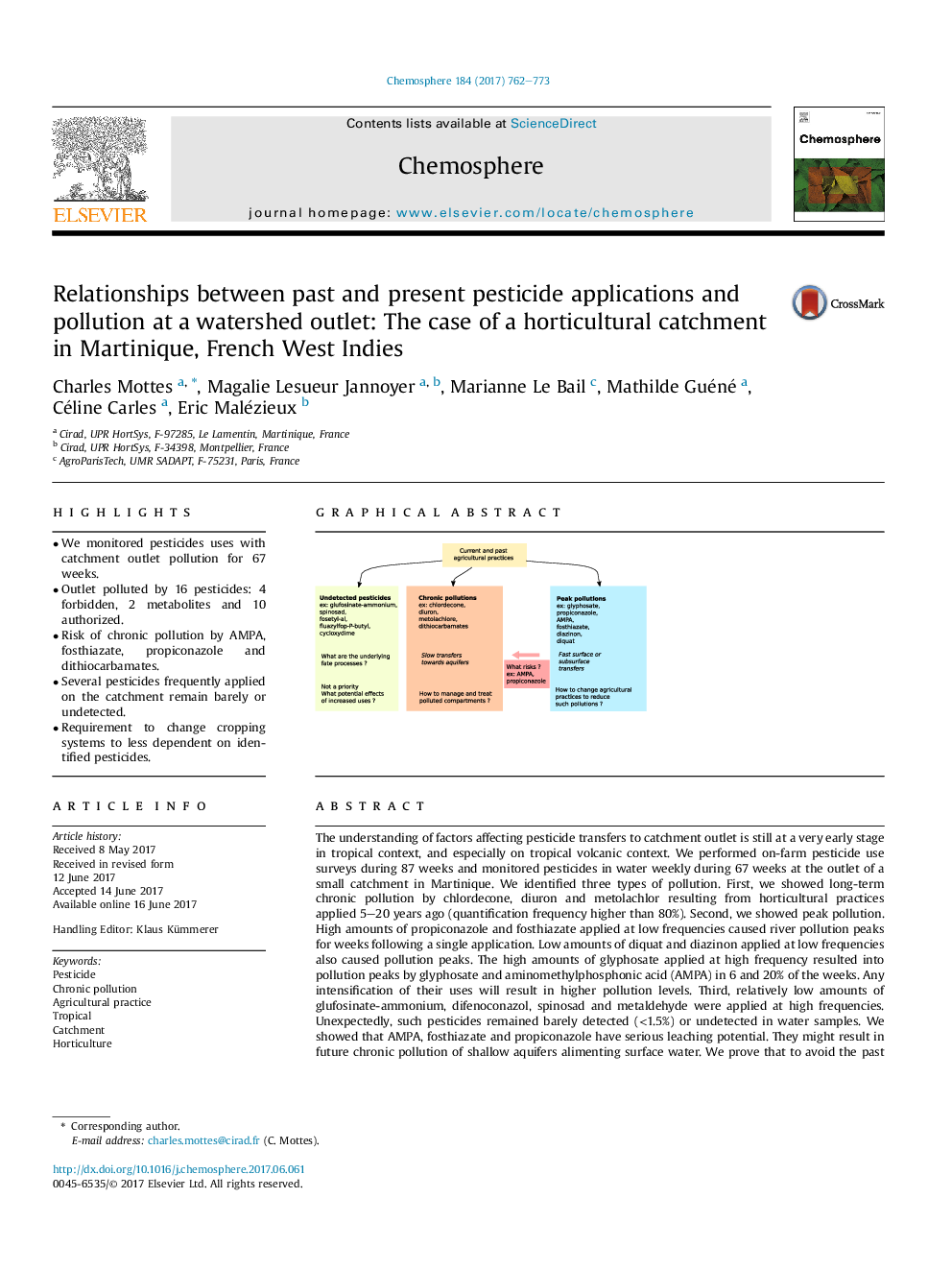| Article ID | Journal | Published Year | Pages | File Type |
|---|---|---|---|---|
| 5746212 | Chemosphere | 2017 | 12 Pages |
â¢We monitored pesticides uses with catchment outlet pollution for 67 weeks.â¢Outlet polluted by 16 pesticides: 4 forbidden, 2 metabolites and 10 authorized.â¢Risk of chronic pollution by AMPA, fosthiazate, propiconazole and dithiocarbamates.â¢Several pesticides frequently applied on the catchment remain barely or undetected.â¢Requirement to change cropping systems to less dependent on identified pesticides.
The understanding of factors affecting pesticide transfers to catchment outlet is still at a very early stage in tropical context, and especially on tropical volcanic context. We performed on-farm pesticide use surveys during 87 weeks and monitored pesticides in water weekly during 67 weeks at the outlet of a small catchment in Martinique. We identified three types of pollution. First, we showed long-term chronic pollution by chlordecone, diuron and metolachlor resulting from horticultural practices applied 5-20 years ago (quantification frequency higher than 80%). Second, we showed peak pollution. High amounts of propiconazole and fosthiazate applied at low frequencies caused river pollution peaks for weeks following a single application. Low amounts of diquat and diazinon applied at low frequencies also caused pollution peaks. The high amounts of glyphosate applied at high frequency resulted into pollution peaks by glyphosate and aminomethylphosphonic acid (AMPA) in 6 and 20% of the weeks. Any intensification of their uses will result in higher pollution levels. Third, relatively low amounts of glufosinate-ammonium, difenoconazol, spinosad and metaldehyde were applied at high frequencies. Unexpectedly, such pesticides remained barely detected (<1.5%) or undetected in water samples. We showed that AMPA, fosthiazate and propiconazole have serious leaching potential. They might result in future chronic pollution of shallow aquifers alimenting surface water. We prove that to avoid the past errors and decrease the risk of long-term pollution of water resources, it is urgent to reduce or stop the use of pesticides with leaching potential by changing agricultural practices.
Graphical abstractDownload high-res image (247KB)Download full-size image
